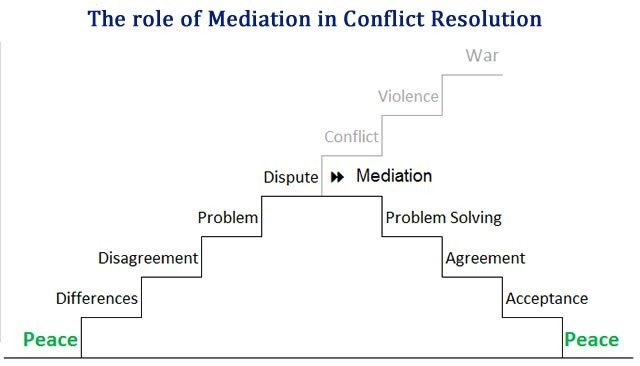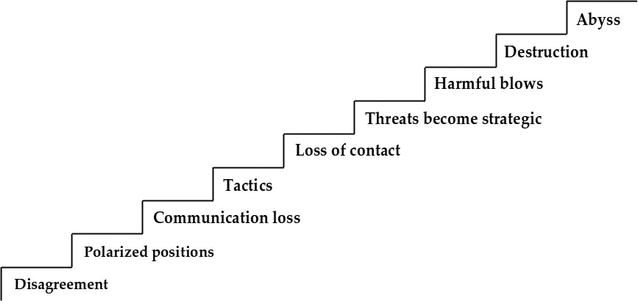In any organization or group setting, conflicts are inevitable. Whether it’s a disagreement between team members, a clash of ideas, or a more significant dispute, managing these conflicts effectively is crucial for maintaining a positive and productive environment. This is where a skilled facilitator becomes invaluable. Here’s a look at the pivotal role a facilitator plays in conflict resolution and how they can make a difference.
1. Neutral Third Party
One of the primary roles of a facilitator in conflict resolution is to act as a neutral third party. This impartial stance helps ensure that all parties feel heard and respected, and it prevents the facilitator from being perceived as biased.
- Action Step: Establish and communicate your neutral role clearly at the start of the conflict resolution process. Ensure that all parties understand your goal is to assist in finding a fair resolution, not to take sides.
2. Creating a Safe Environment
A facilitator sets the stage for conflict resolution by creating a safe and respectful environment for discussion. This includes setting ground rules and managing the physical and emotional atmosphere of the meeting.
- Action Step: Establish ground rules for respectful communication and behavior. Create a supportive environment where all parties feel comfortable expressing their views without fear of retribution or judgment.
3. Guiding the Process

Facilitators guide the conflict resolution process by keeping discussions focused and structured. They help parties navigate through their differences and work towards a constructive outcome.
- Action Step: Use structured techniques such as agendas, time limits, and guided questions to keep the discussion on track. Facilitate the conversation to ensure it remains productive and goal-oriented.
4. Encouraging Open Communication
Effective conflict resolution relies on open and honest communication. Facilitators encourage participants to express their concerns and viewpoints clearly and listen actively to others.
- Action Step: Use active listening techniques, such as summarizing and reflecting on what has been said. Encourage all parties to speak openly and listen to each other without interruption.
5. Identifying Common Interests
A key role of the facilitator is to help parties identify and focus on their common interests and goals. By highlighting shared objectives, facilitators can guide discussions towards mutually beneficial solutions.
- Action Step: Facilitate brainstorming sessions to uncover common interests and shared goals. Help parties understand how addressing their mutual interests can lead to a more satisfactory resolution.
6. Managing Emotions
Conflicts often involve strong emotions, and managing these emotions is crucial for a successful resolution. Facilitators help by acknowledging feelings and maintaining emotional control in the discussion.
- Action Step: Address emotional responses empathetically and professionally. Provide space for participants to express their feelings and help them focus on resolving the conflict rather than dwelling on emotions.
7. Fostering Collaboration
Facilitators promote a collaborative approach to conflict resolution, encouraging all parties to work together towards a solution. This collaborative mindset helps build consensus and strengthens relationships.
- Action Step: Use collaborative problem-solving techniques, such as joint brainstorming and negotiation, to find solutions that work for everyone. Encourage cooperation and emphasize the benefits of working together.
8. Providing Structure and Focus
Facilitators provide structure to the conflict resolution process, ensuring that discussions remain focused and productive. They help prevent conversations from becoming sidetracked or unproductive.
- Action Step: Create and follow a clear agenda for the conflict resolution meeting. Use facilitation tools such as charts or lists to keep track of key points and decisions.
9. Encouraging Accountability
Facilitators help ensure that all parties take responsibility for their roles in the conflict and the resolution process. Accountability is key to ensuring that solutions are implemented and maintained.
- Action Step: Clearly define action items and responsibilities for each party as part of the resolution. Follow up on these commitments to ensure that agreed-upon solutions are put into practice.
10. Evaluating the Outcome
After the conflict has been resolved, facilitators evaluate the outcome to assess its effectiveness and identify any areas for improvement. This evaluation helps in refining conflict resolution strategies for the future.
- Action Step: Conduct a debriefing session with the parties involved to review the resolution process and outcomes. Gather feedback on what worked well and what could be improved for future conflict resolution efforts.
Conclusion
The role of a facilitator in conflict resolution is essential for guiding discussions, managing emotions, and fostering collaboration. By creating a safe environment, encouraging open communication, and focusing on common interests, facilitators can help parties resolve conflicts constructively and effectively. Embracing these strategies ensures that conflicts are addressed in a manner that promotes positive outcomes and strengthens relationships within the group.

